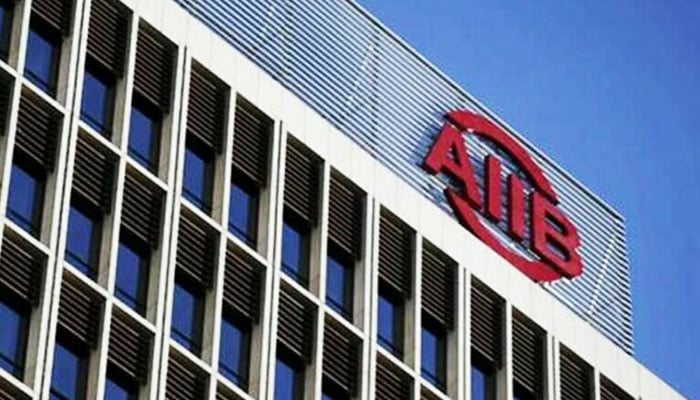AIIB credits SBP account with $500m, Dar confirms
Financing sent under ADB's BRACE programme to provide fiscal space needed for government to implement its countercyclical development expenditure package
ISLAMABAD: The Asian Infrastructure Investment Bank (AIIB) has credited the State Bank of Pakistan's account with $500 million co-financing under the Asian Development Bank (ADB)-funded Building Resilience with Active Countercyclical Expenditures (BRACE) programme.
"AIIB has transferred today, as per their Board’s approval, to State Bank of Pakistan/Government of Pakistan US $ 500 million as program financing," Finance Minister Ishaq Dar said in a tweet.
The board of AIIB approved $500 million on November 9.
In October, the ADB approved $1.5 billion in financing to help Pakistan provide social protection, promote food security, and support employment for its people amid devastating floods and global supply chain disruptions, the multilateral lender said on Friday.
The loan, provided under ADB’s BRACE programme, will help fund the government’s $2.3 billion countercyclical development expenditure programme designed to cushion the impacts of external shocks, including the Russian invasion of Ukraine.
ADB’s financing will provide the fiscal space needed for the government to implement its countercyclical development expenditure package, which is designed to target the poorest families in Pakistan who are often disproportionately affected in times of crisis.
The government’s support includes specific measures to promote gender empowerment and climate change adaptation, which have become even more critical in light of the recent floods.
ADB’s assistance will help to expand the number of families receiving cash transfers from 7.9 million to 9 million, increase the number of children enrolled in primary and secondary schools, and enhance geographic coverage of health services and nutritional supplies for pregnant and lactating mothers and children under 2 years old.
-
Will Warner Bros finalize deal with Paramount or stays loyal with Netflix's offer?
-
$44 billion Bitcoin blunder: Bithumb exchange apologizes for accidental payout
-
Global memory chip crunch puts spotlight on Apple; Will iPhone become more pricey?
-
Bitcoin plummets toward $60,000 as investors dump risky bets
-
Bitcoin crashes below $63K as regulatory pressure and market fears grow
-
Bitwise Crypto Industry innovators ETF: What investors should do in 2026?
-
Nintendo shares slide again as momentum fears grow
-
Gold, silver prices fallen sharply; What’s driving the drop?












